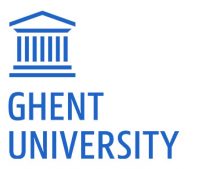Several guest lectures, support, organization & evaluation of the seminar as a (doctor-)assistant
Contents of the course
Many stagings of contemporary theatre, performance and dance (Christoph Marthaler, Elfriede Jelinek, Rimini Protokoll, Emre Koyuncuoglu, Fatih Akin, Tanja Ostojic), but also videos and performances by activists (Precarias a la derivá) explicitly refer to social and political events, without realistically representing them. The image of the nation state and its relationship to theatre, histories of wars, economic crises and poverty, the working conditions in the theatre itself, migration and sexual identity, are some of the issues that “appear” on stage in one way or another. Artistic performances are both shaped by other realities and are themselves agents of the performative genesis of the political and social realms. But how are social and political events present in artistic stagings, if they are not represented? Which methods of theatre studies are able to make them visible? How does theatre studies position itself in relation to the dominant presence of “reality” in theatre?
This course looks into these questions firstly by examining various theories, and secondly through numerous examples of artistic performances. Especially useful in this regard will be dance studies’ method of “context analysis“ (Randy Martin) and the concept of “precarious life“ (Judith Butler). The artistic examples (from theatre, performance art, dance, and film) come from both renown theatre makers (and institutions) and from minoritarian activist groups. In this way the tensions between minority and majority groups, between the so-called ‘high culture’ and so-called ‘popular culture’ gain significance. Further, under the theme of “Theatre and Other Realities” different theatre models are discussed, which, for example, may understand art as the opposite of, or as a part of, reality.
Final competences of the course
- Knowledge of contemporary stagings of political theatre.
- Knowledge of performative formats beyond the theatre.
- Knowledge of basic texts about the themes described above.
- The application of philosophy to performance analysis.
- The independent analysis of performances in relation to a self-chosen theme.
- Critical insights into connections between political events and artistic developments.
More information:
- Studies in Performing Arts & Media (Ghent University)
- Master of Arts in Art History, Musicology and Theatre Studies
- Ufora Digital learning platform Ghent University (login required)


